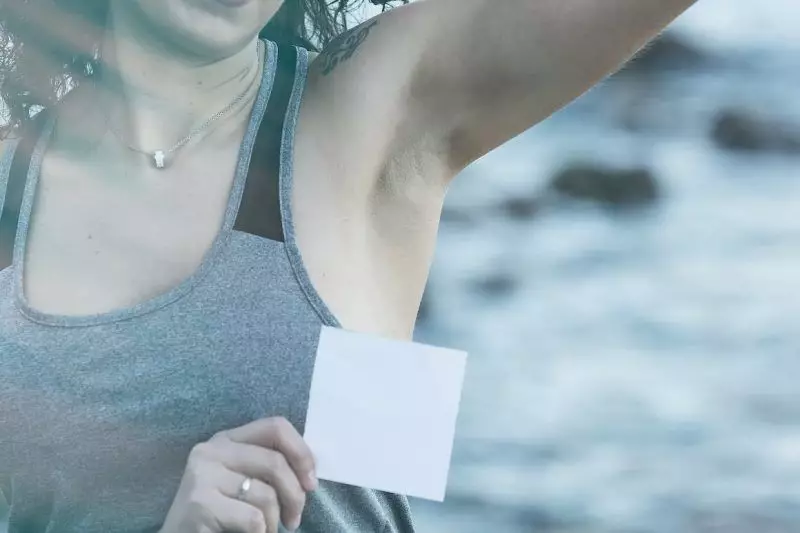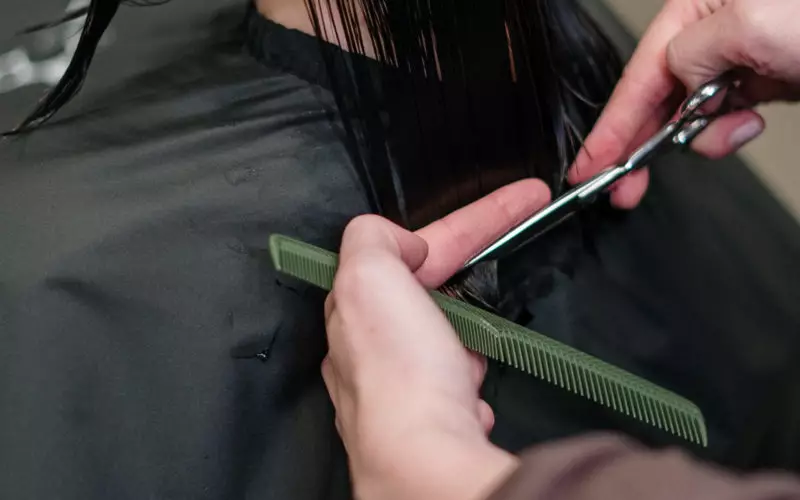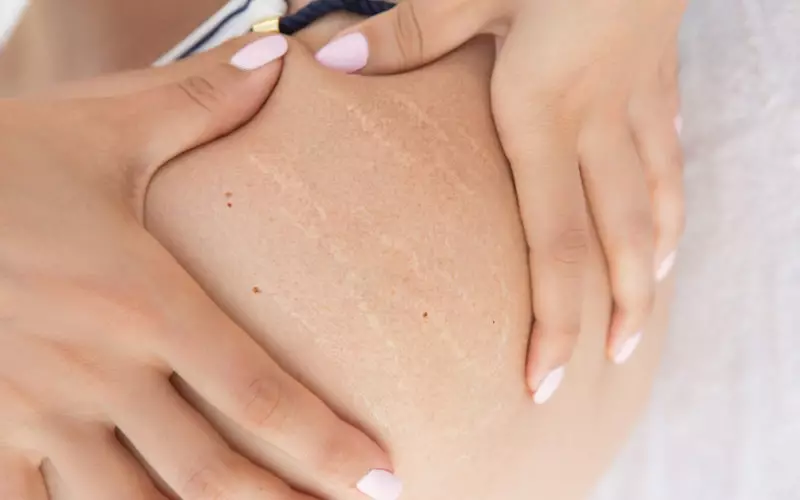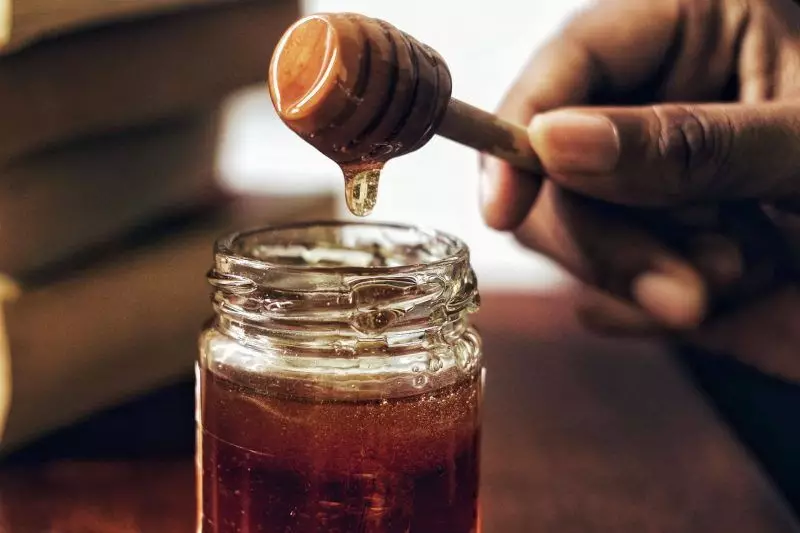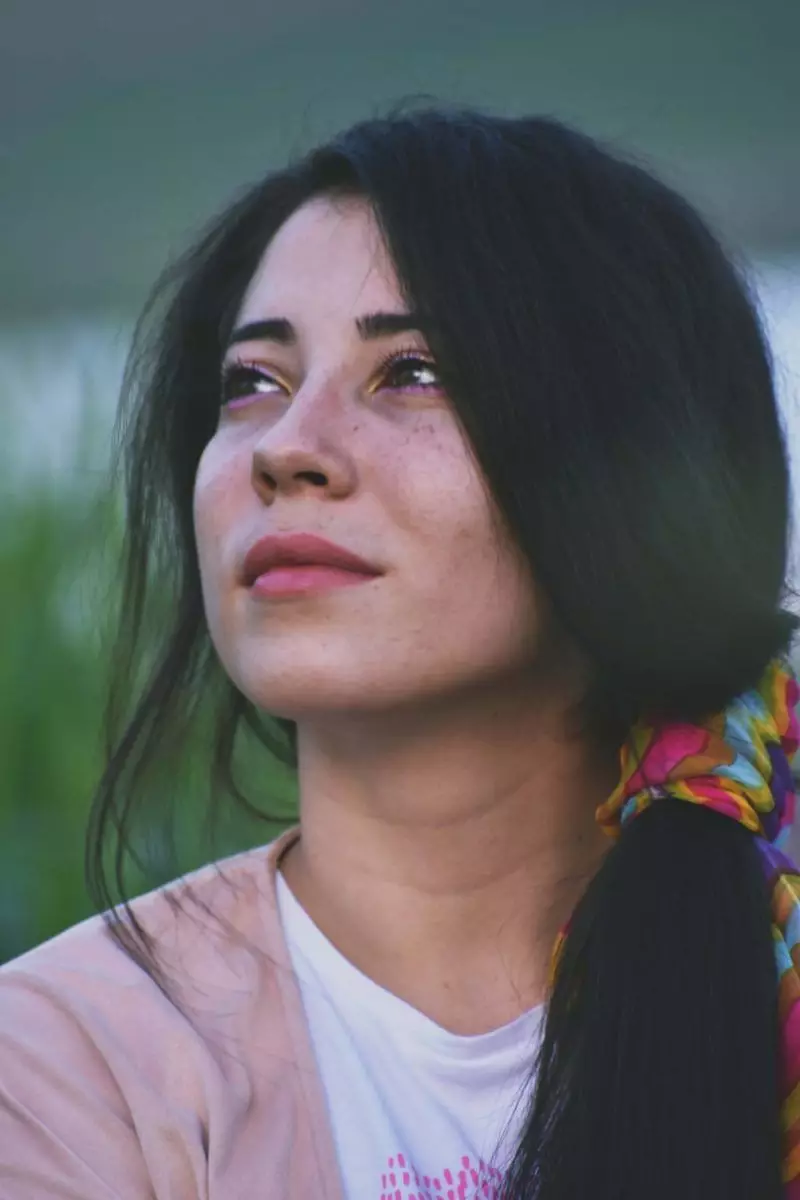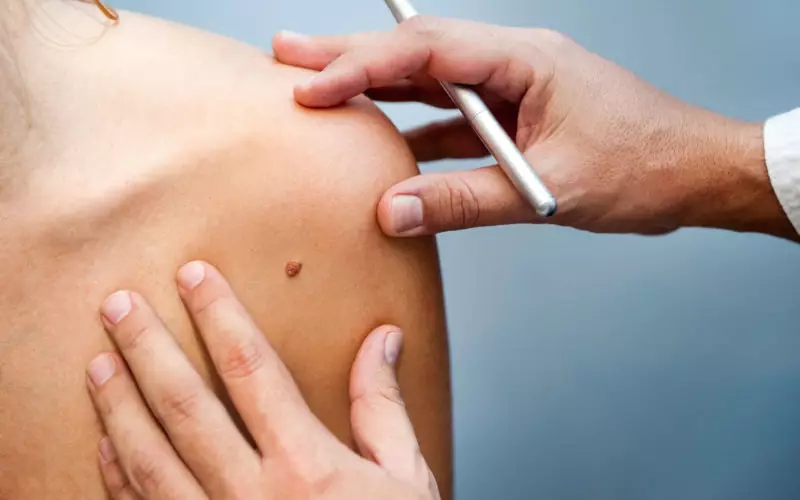
Hello, Summer! Time to get that nice summer glow, but let’s be sure it’s a healthy one as unprotected or excessive ultraviolet (UV) exposure from the sun or indoor tanning can cause skin cancer.
Sun exposure can also lead to wrinkles and sunspots along with speeded aging. Sunscreen is an excellent way to protect yourself. In fact, sunscreens are considered over-the-counter drugs regulated by the Food and Drug Administration (FDA).
- Top 6 Broad Spectrum Sunscreen Picks for 2022:
- 1. For basic, daily use: Supergoop Unseen Sunscreen SPF 40
- 2. For your days at the beach or playing sports: Vichy Capital Soleil Soft Sheer Sunscreen SPF 60
- 3. For the luxurious yet protective mineral sunscreen: Tatcha The Silk Sunscreen
- 4. For the face and body sunscreen that melts-in: La Roche-Posay Anthelios Melt-in Milk Sunscreen SPF 60
- 5. For skin-types with acne, hyperpigmentation or rosacea: Elta MD UV Clear Broad-Spectrum SPF 46
- 6. For the budget and easy-access: Hawaiian Tropic Sheer Touch Lotion Sunscreen SPF 30
- Sunscreen Basics
- Best Ways to Protect Yourself
Top 6 Broad Spectrum Sunscreen Picks for 2022:
1. For basic, daily use: Supergoop Unseen Sunscreen SPF 40
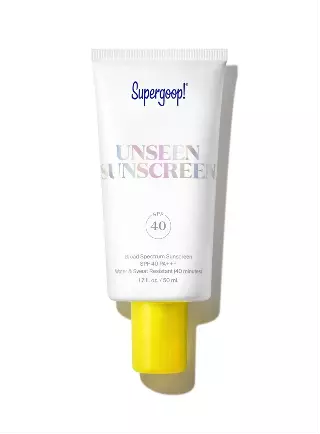
This is a perfect option if you want something transparent without a heavy scent. It feels velvety and lightweight – you can’t tell you have anything on! Wear it alone or underneath your makeup as a primer.
2. For your days at the beach or playing sports: Vichy Capital Soleil Soft Sheer Sunscreen SPF 60
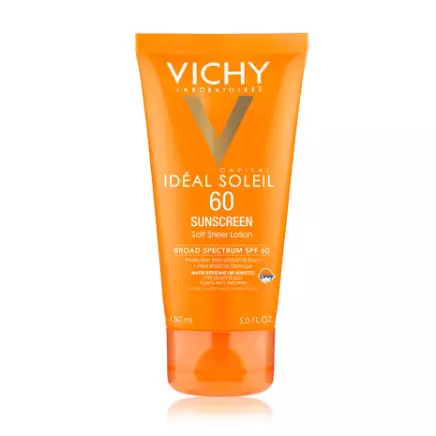
This can be applied on your face and body and is water resistant for up to 80 minutes. It is dermatologist- and allergy–tested.
3. For the luxurious yet protective mineral sunscreen: Tatcha The Silk Sunscreen
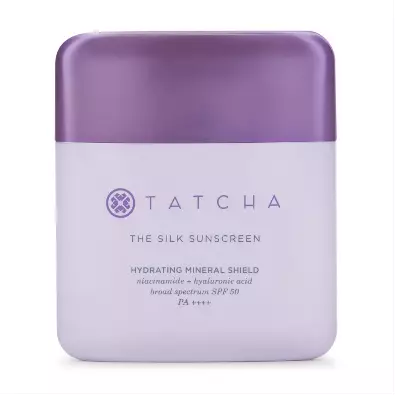
This is a mineral sunscreen that feels silky without a cast – a rare combination to come by! It also has niacinamide (vitamin B3) which helps minimize the size of pores, reduce redness, visibly firm and even skin tone along with hyaluronic acid which gives a more hydrated appearance.
4. For the face and body sunscreen that melts-in: La Roche-Posay Anthelios Melt-in Milk Sunscreen SPF 60
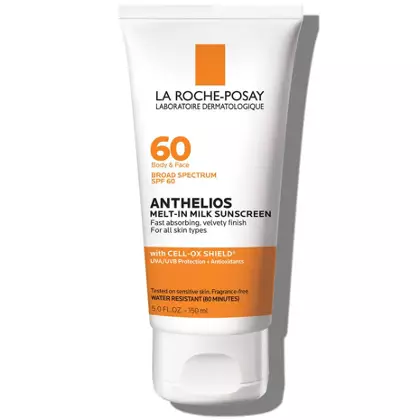
This dual face and body option is oil-free, fragrance-free, and water resistant for up to 80 minutes. It is safe for sensitive skin, feels great on, fast-absorbing, and noncomedogenic.
5. For skin-types with acne, hyperpigmentation or rosacea: Elta MD UV Clear Broad-Spectrum SPF 46
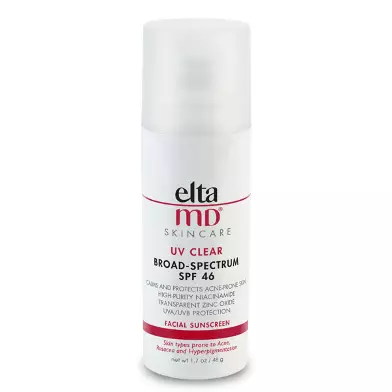
This mineral sunscreen helps calm and protect sensitive skin types prone to discoloration and breakouts associated with acne and rosacea. It also contains niacinamide (vitamin B3), hyaluronic acid and lactic acid to support beautiful looking skin.
6. For the budget and easy-access: Hawaiian Tropic Sheer Touch Lotion Sunscreen SPF 30
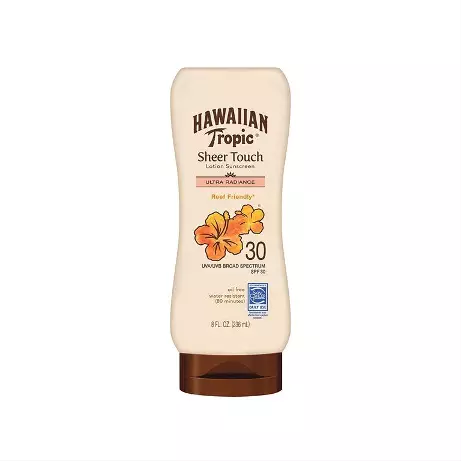
This is the ultimate go-to when on a budget or need to grab a product at your local drugstore on your tropical vacation (we’ve all had the trip where we forgot to pack the sunscreen!). It’s great for body use and is non-greasy yet still leaves you feeling hydrated. It is also reef-safe so you can enjoy snorkeling without harming the wildlife.
Sunscreen Basics
- SPF stands for Sun Protection Factor and measures how well a sunscreen can help prevent skin damage from UV radiation. It’s a number that describes how long the sun’s UV rays would take to redden your skin with versus without sunscreen. For example, after using an SPF 30 sunscreen (the minimum recommended by the American Academy of Dermatology), it would take 30 times longer to burn compared to without the sunscreen. Keep in mind, SPF 30 blocks 97% of the sun’s rays so anything above this is just slightly more effective as there are no sunscreens that can block 100% of the rays. It’s important not to have a false sense of extra security when wearing higher SPF.
- Broad spectrum sunscreen is a must because it protects against both ultraviolet A (UVA) and ultraviolet B (UVB) rays which can both cause skin cancer. UVA rays lead to premature aging and wrinkles (these can get through windows and glass like when you are driving in your car) while UVB rays cause sunburn and are more common.
- Water-resistant means you’re protected for up to 40 minutes in water (some products can last longer than this) whereas waterproof means nothing in this context (marketing gimmick!). Water resistant products are important if you’re spending the day in the water or prone to sweating like when playing sports.
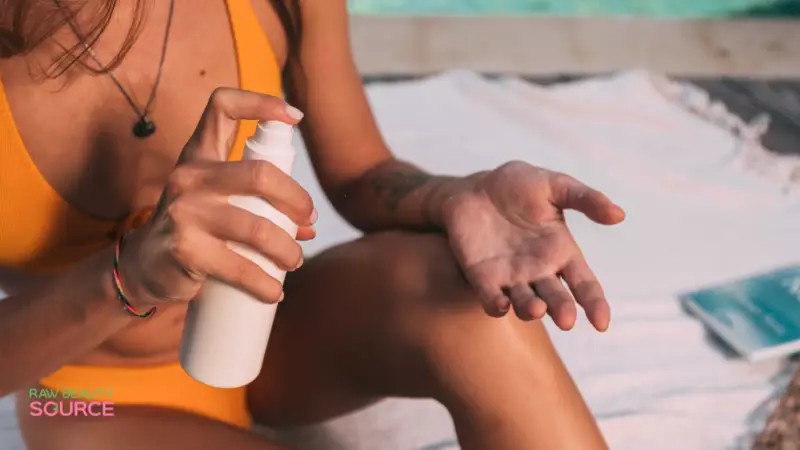
Best Ways to Protect Yourself
1. Wear UV-blocking sunglasses, sun-safe clothing (i.e., bodysuits or ultraviolet protective clothing) and wide-brim hats. It’s also best to stay in the shade or under umbrellas especially if you plan to be outside for a long period of time.
2. Apply sunscreen early and reapply! Sunscreen should be applied about 20 minutes before you get out in the sun and reapplied after 2 hours. It should be reapplied sooner after swimming or profusely sweating. Grab a travel size product to keep with you on the go.
3. Don’t forget your ears, nose, cheeks, and hands as most skin cancers occur in these areas.
4. Skip aerosol (spray) sunscreens. The Environmental Working Group has suggested against these for over ten years because of the difficulty with proper application, potential ingredient toxicity and inhalation concerns.
This content is for informational and educational purposes only. It does not constitute a medical opinion, medical advice, or diagnosis or treatment of any particular condition.

